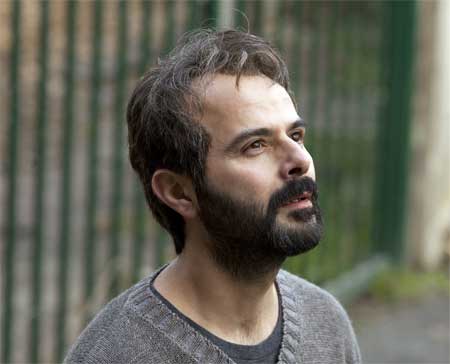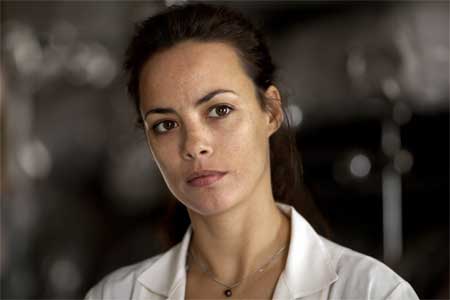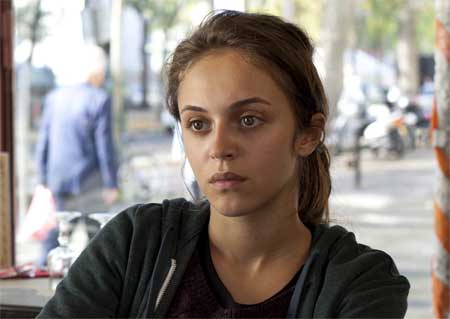Film (2013)
Written and directed by Asghar Farhadi
With Bérénice Bejo (Marie Brisson), Tahar Rahim (Samir), Ali Mosaffa (Ahmad), Pauline Burlet (Lucie), Elyes Aguis (Fouad), Jeanne Jestin (Léa), Sabrina Ouazani (Naïma), Babak Karimi (Shahryar), Valeria Cavalli (Valeria), Aleksandra Klebanska (Céline)

in “The Past”
Photo by Carole Bethuel © 2013
Courtesy of Sony Pictures Classics
Marie (Bérénice Bejo), a handsome middle-aged woman with two daughters, has asked her estranged husband, Ahmad (Ali Mosaffa) – not the biological father of the girls, but their mentor – to return from Iran to France so they can get a divorce. Involved with someone else, Samir (Tahar Rahim), who has a wife in a coma and a young son, she certainly has her hands full, and empties a certain amount from them on Ahmad when he returns.
This long film tries at once to be a kind of persuasive study of separation, divorce and remarriage, and a species of melodrama. Together they make a long mish-mosh that is neither a persasive personal story nor an effective suspense drama.
There is some good writing here, but also a lot that leaves plenty to be desired. At one point, the film gratuitously drops in on Samir’s seven year old son, who asks, ridiculously, about who sent the emails that complicated things a lot. I barely understood the significance of that plot turn, and I am supposed to believe that this little boy has figured it all out? Give me a break.
Ali Mosaffa, who plays Ahmad, is an engaging actor. He has a quiet demeanor which holds things together nicely, but even he can’t hold things together for the two plus hours this film rambles on.

in “The Past”
Photo by Carole Bethuel © 2013
Courtesy of Sony Pictures Classics
Bérénice Bejo (Marie) – who gained prominence as the silent female lead opposite Jean Dujardin in The Artist (2011) – plays a charmingly attractive character whose cracks gradually begin to show. It’s a little hard to judge her performance since the script goes kind of haywire around her, but there is something generally unsettling about the role.

in “The Past”
Photo by Carole Bethuel © 2013
Courtesy of Sony Pictures Classics
Pauline Burlet (Lucie), as the daughter, has a penetrating quality, and through her performance one gains a lot of sympathy for this character who has to deal with a lot of nutty things in the parental realm.
One has to wade through a couple of twists in the overly complex ending before getting to the final lollapalooza, which is pretty over the top and which the director leaves hanging in a not very satisfying way.
Asghar Farhadi gained considerable attention with The Separation (2011), a much better film about familial challenges facing ordinary people in Iran. It was an emotionally honest portrayal and filled a hole in an important way. The Past is much more contrived and rings far less true.
– BADMan
Leave a Reply